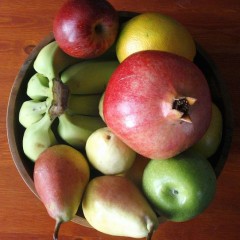
A buddy and I were chatting the other day about the difference between fresh farm-grown food and the stuff you find in supermarkets. We agreed that the food you eat right off the farm is vastly better-tasting and better for you.
Food scientists and mass producers tell us there’s nothing wrong with the food in supermarket freezers and coolers, or in all those boxes, cans and jars. But studies say a lot of that food causes a myriad of health problems, including what are known as diseases of the affluent — everything from autism and asthma to various cancers.
Even worse, the latest information is that, for the first time in history, the life expectancy of Americans is going down!
These warnings are scary and yet we ignore them. Why?
Well, for starters, it’s inconvenient. If all of us were to truly heed those warnings we would have to spend more time shopping for and preparing our own food, and who has time for that? That’s what keeps fast-food chains and frozen-dinner manufacturers in business.
We also ignore the warnings because they’re unpleasant. We like our food precisely because it has too much fat, too much sugar, too much salt. There’s evidence that bacon is heart attack on a plate but would you give it up?
Third, many of us can’t afford to heed the warnings. Last year I went into a supermarket known for selling “healthy” foods and bought an organically grown peach. That one peach cost me $1.60. How do the poor eat healthy? Simple: They don’t. That’s the price they will pay for Congress’ decision to cut back on Food Stamps. Healthy eating is reserved mostly for the “rich.”
Fourth, we can’t avoid problematic food. When you eat at a restaurant you don’t know what you’re eating. You could be served a meal that contains food you’d never buy at the grocery store — stuff like antibiotic-tainted meat.
Lastly, we ignore the warnings because we have been conditioned to believe the loudest voices. We don’t want to exert the effort to discern truth, and thus we cannot distinguish between truth and lies. We trust what others say in the hope that they are correct.
To sum it up, we lack the will to know the truth, and even when we “know” the truth intellectually we aren’t able to be influenced by it. Read Romans 7.
Jesus said “I am the way, the truth and the life.” He offers us not only the ability to know what’s true but also the motivation to live by it and to help others to do so. God cares about our health, but rather than asking Him to share some of that truth with us, which would improve our lives, most of us prefer to continue living in the illusion that humanity’s version of the truth is good enough. OK. Whatever.






